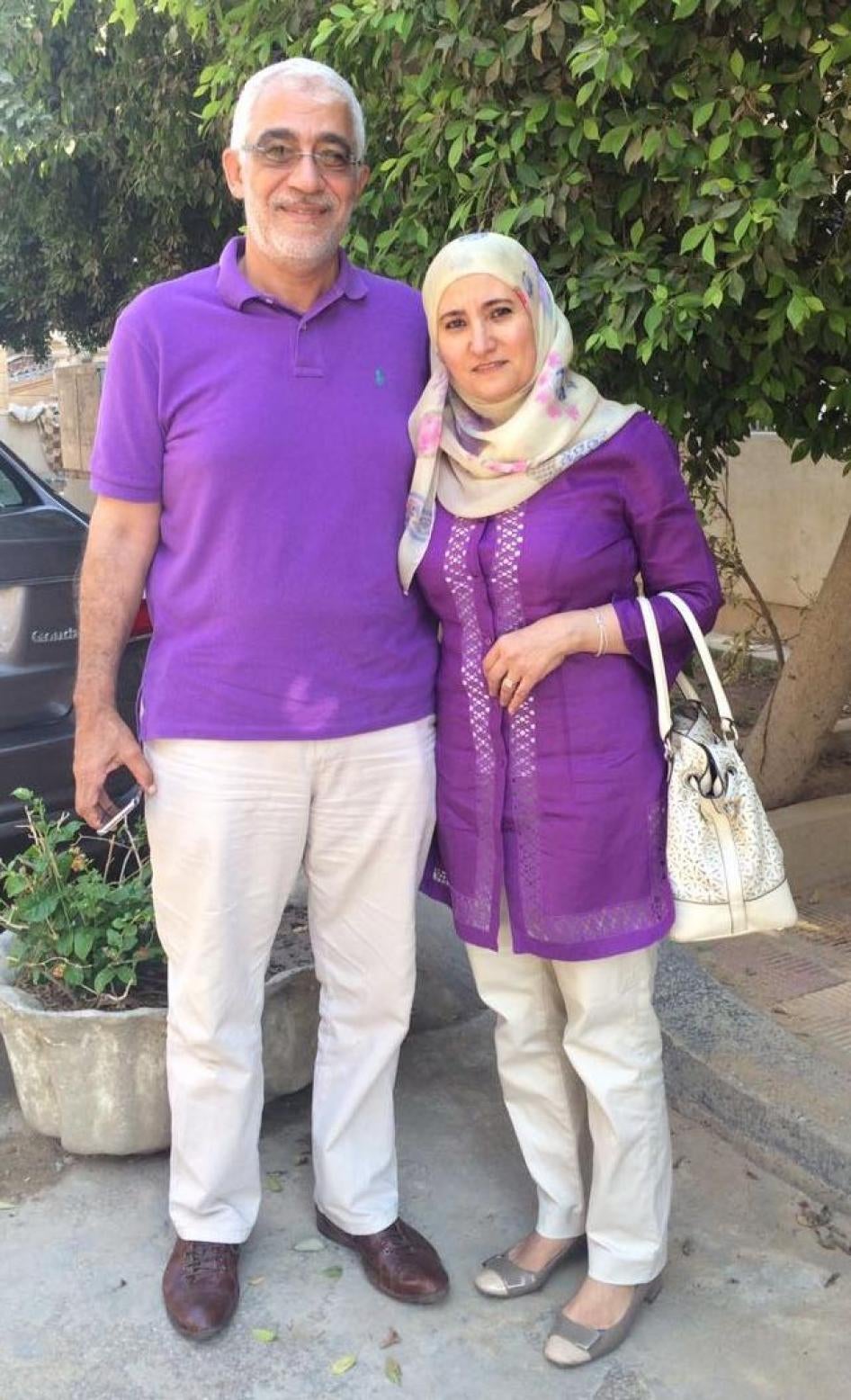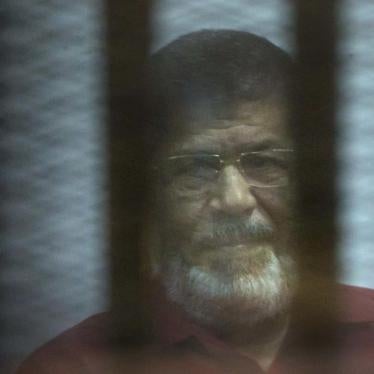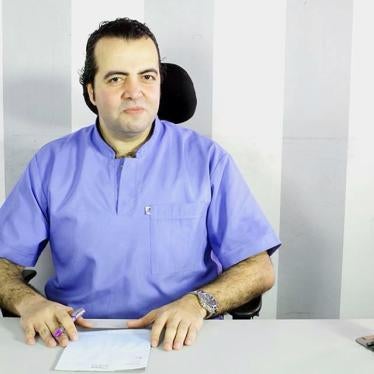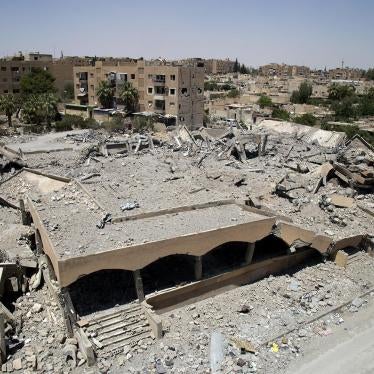(Beirut) – Egyptian authorities should release Ola al-Qaradawi, the daughter of a well-known Islamic scholar, who was rearrested on July 4, Human Rights Watch said today. A prosecutor charged al-Qaradawi, 58, for membership and support of a terrorist group by “using her relationships in prison,” though she spent the last two years in solitary confinement.
A judge ordered the release of al-Qaradawi, the daughter of well-known Islamic scholar Yusuf al-Qaradawi, on July 3, on probation, after she spent two years in pretrial detention without charge. Egyptian law permits a maximum of two years in pretrial detention. Egyptian forces originally arrested al-Qaradawi and her husband, Hosam Khalaf, in June 2017. Khalaf, 60, remains jailed, though he has not been charged.
“The renewed detention of Al-Qaradawi, apparently for no reason other than the fact than she is the daughter of Yusuf al-Qaradawi, demonstrates how the Egyptian authorities shamelessly use the judicial system as a tool of oppression,” said Sarah Leah Whitson, Middle East and North Africa director at Human Rights Watch. “Facing the prospect of having to release her by Egyptian law after detaining her without trial for two years, they’ve now come up with fantastic charges of terrorist activity in prison, though she’s been in virtual solitary confinement the entire time.”
On July 3, a judge ordered al-Qaradawi’s conditional release pursuant to article 143 of Egypt’s Code of Criminal Procedure, which requires the release of any detainee held in pretrial detention for more than two years. Khalaf, who has also been held for more than two years without trial, was not brought by the prison authorities before the judge “for security reasons,” according to his lawyer. Egyptian police never released al-Qaradawi despite the court order. On July 4, a day after the order, a State Security prosecutor renewed the original charges against her, and as part of the new case regarding her activities in prison, sent her back to solitary confinement. The new case in addition to the previous charges mean that al-Qaradawi, who holds Qatari citizenship, could be held for two more years in pretrial detention under Egyptian law.
Al-Qaradawi’s family told Human Rights Watch that for the past two years, Egyptian security forces have held al-Qaradawi in solitary confinement for 23 hours a day in al-Qanater prison. Her husband has been held in the notorious Scorpion prison, also in solitary confinement. The family also said that during this time, al-Qaradawi and Khalaf have had extremely limited access to lawyers and family, received no phone calls, and reported inadequate access to medical care, food, and medicine.
According to the family, al-Qaradawi’s physical and psychological health has been deteriorating over the last two years. A family member told Human Rights Watch that prison authorities have denied al-Qaradawi sunlight, a mattress, and a pillow. The family member added that they have never been able to speak to Khalaf since he was detained and do not have any knowledge about his medical condition.
Reports indicate that Egyptian authorities have failed to provide adequate medical care to thousands of political prisoners. On June 17, former President Mohamed Morsy died in a courtroom after years of grave abuses and insufficient access to medical care. Detainees have been complaining for years about the lack of medical care in prisons. Recently, the son of Abdelmonem Abolfotouh, a former presidential candidate and the head of Strong Egypt Party, told journalists his father has suffered two heart attacks in prison, where he has been held in a solitary confinement, adding that he fears for his father’s life because of the harsh conditions he faces in prison.
As Human Rights Watch reported in 2017, the detentions of al-Qaradawi and Khalaf appear linked entirely to their relation to al-Qaradawi’s father, who lives in Qatar and has citizenship there. He was sentenced to death in absentia along with the late President Morsy and 98 other defendants, only six of whom were in custody, in June 2015. Human Rights Watch’s analysis of the case shortly after the verdict found the trial was flawed and judges failed to establish individual criminal guilt.
Al-Qaradawi’s family told Human Rights Watch that following her detention renewal, al-Qaradawi officially declared to the prosecution that she is starting a hunger strike until she is unconditionally released.
After more than two years in detention, Egyptian authorities failed to bring any credible evidence to justify the charges enabling the couple’s prolonged and excessive two years of pretrial detention. Their detention has lacked any basic semblance of due process.
Under international and African human rights law applicable in Egypt, all persons arrested should be charged promptly and informed about the charge. Detention before trial should be the exception – not the rule – and the authorities should justify the necessity for continued detention before trial of individuals in regular hearings before a court. Everyone detained before trial is entitled to a trial within a reasonable period of time or be released. Prolonged solitary confinement is considered inhuman and degrading treatment and is strictly prohibited in all circumstances.
“Egypt’s prosecutors have made a mockery of the law, creating fantastic new charges of al-Qaradawi’s terrorist activities in prison, just to keep her imprisoned,” said Whitson. “Anyone who cites Egypt as a country governed by the rule of law is choosing to ignore the despicable records of its use as a mere political cudgel.”









